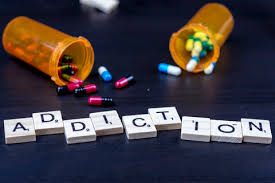How To Combat Drug Addiction – Sociology Notes – For W.B.C.S. Examination.
কীভাবে ড্রাগ আসক্তির বিরুদ্ধে লড়াই করা যায় – সমাজবিজ্ঞান নোট – WBCS পরীক্ষা।
Developing an addiction to drugs isn’t a character flaw or a sign of weakness, and it takes more than willpower to overcome the problem. Abusing illegal or certain prescription drugs can create changes in the brain, causing powerful cravings and a compulsion to use that makes sobriety seem like an impossible goal.Continue Reading How To Combat Drug Addiction – Sociology Notes – For W.B.C.S. Examination.
But recovery is never out of reach, no matter how hopeless your situation seems or how many times you’ve tried and failed before. With the right treatment and support, change is possible.
For many people struggling with addiction, the toughest step toward recovery is the very first one: recognizing that you have a problem and deciding to make a change. It’s normal to feel uncertain about whether you’re ready to start recovery, or if you have what it takes to quit. If you’re addicted to a prescription drug, you may be concerned about how you’re going to find an alternate way to treat a medical condition. It’s okay to feel torn. Committing to sobriety involves changing many things, including:
- the way you deal with stress
- who you allow in your life
- what you do in your free time
- how you think about yourself
- the prescription and over-the-counter medications you take
It’s also normal to feel conflicted about giving up your drug of choice, even when you know it’s causing problems in your life. Recovery requires time, motivation, and support, but by making a commitment to change, you can overcome your addiction and regain control of your life.
- Keep track of your drug use, including when and how much you use. This will give you a better sense of the role the addiction is playing in your life.
- List the pros and cons of quitting, as well as the costs and benefits of continuing your drug use.
- Consider the things that are important to you, such as your partner, your kids, your pets, your career, or your health. How does your drug use affect those things?
- Ask someone you trust about their feelings on your drug use.
Once you’ve committed to recovery, it’s time to explore your treatment choices. While addiction treatment can vary according to the specific drug, a successful program often includes different elements, such as:
Detoxification. Usually the first step is to purge your body of drugs and manage withdrawal symptoms.
Behavioral counseling. Individual, group, and/or family therapy can help you identify the root causes of your drug use, repair your relationships, and learn healthier coping skills.
Medication may be used to manage withdrawal symptoms, prevent relapse, or treat any co-occurring mental health condition such as depression or anxiety.
Long-term follow-up can help to prevent relapse and maintain sobriety. This may include attending regular in-person support groups or online meetings to help keep your recovery on track.
Please subscribe here to get all future updates on this post/page/category/website


 +919674493673
+919674493673  mailus@wbcsmadeeasy.in
mailus@wbcsmadeeasy.in







































































































